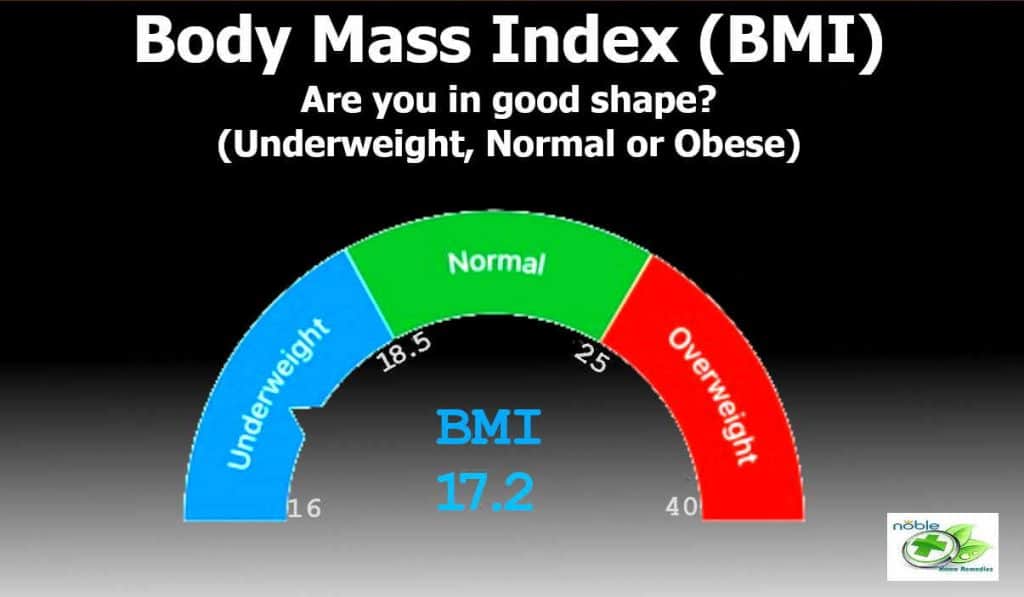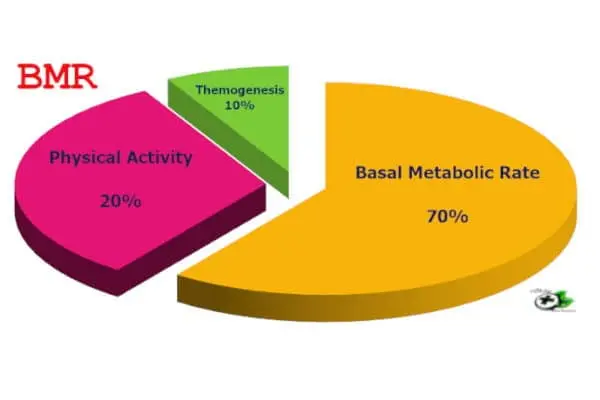What Does Poop Taste Like?: 7 Poop Secrets and Your Health
What Does Poop Taste Like? It’s an interesting question!
There have been quite a few requests from our readers seeking insight into this topic. We are not sure why anyone would ever want to know. Despite this, we decided to look into it from a physician’s point of view.
Continue reading to learn what poop reveals about your health. In this article, we also address how poop might taste.
How does poop taste in the mouth? Undoubtedly, no one there can taste the poop and describe what it tastes like. To find out the answer, we try to examine the available materials and forums.
According to various forums, people are saying this about the taste of poop. How accurate they are we cannot confirm. Their answers, however, are fascinating and funny. Let’s have a look at some of these answers:
- It tastes like shit
- It tastes bitter
- Depends on your meal. Taste can differ from person to person based on one’s health
- It has a unique taste
- Sometimes it might taste quite good
- Human poop tastes good and is not of animals
- It may be sweet, bitter, or neutral
- Wonderful fetish
- Feces are almost tasteless, faintly sweet, or bitter
- It tastes like bitter avocado, sometimes more acidic.
- When I think of it I throw up
Really what does poop taste like? Based on answers from forums, it is getting closer to being true that poop tastes bitter. We now turn to experts’ opinions about poop and its taste.
What is Poop?
Before we go into the various aspects of poop, let’s first understand what poop really is. Poop is the term used by laymen when referring to feces or stool. Poop is a type of waste from the human body.
As you consume food, it forms in your body. It goes from the stomach. It goes into the small intestine. Your body absorbs a large amount of material from the small intestine. It absorbs fats, vitamins, carbohydrates, and water. Anything that can’t be absorbed stays in the small intestine. It eventually reaches the colon.
Everything you can’t digest goes into the colon. The colon is where most of the water is absorbed. Eventually will end up in the rectum. Pooping for defecation is the final act of digestion where feces is expelled from the anus.
Poops or feces are a mixture of solid, semisolid, and liquid waste products from the digestive tract.
In a healthy adult, 75% of feces is water. There is the remaining 25% composed of solid matter. Here is what feces are composed of and what the ratio is, as reported by Critical Reviews in Environmental Science and Technology:
- Water – 75 %
- Undigested plant matter or fiber and Polysaccharides (Carbohydrate) – 6.25 %
- Bacterial biomass (dead and living bacteria) – 6.25 to 13.5 %
- Protein – 0.5 to 6.25 %
- Undigested fats – 0,5 to 3.75 %
- The remaining solids are calcium phosphate, iron phosphate, intestinal secretions, and digestive juices (epithelial cells and mucus).
The proportion may vary from individual to individual depending on their diet and their health conditions.
Also, feces may contain parasites that get into the food.
Feces have a pH of 6.6 because of the 75% water content. However, you should remember this measurement is based on an adult who is normally healthy.
A stool’s texture and softness are largely determined by one’s health condition and intake of dietary fiber.
Constipation and diarrhea are extreme forms of poop.
Diarrhea faces are five times heavier than those without diarrhea. This is more like liquid stool. A person with diarrhea may defecate at least three times per day.
Constipated feces weight is drastically decreased because of reduced water content. When this occurs, the stool may become hard and the patient may strain when attempting to defecate. A person who is constipated usually defecates 3 times or less per week.
To maintain a healthy digestive system, consume fiber-rich foods. These will help you defecate normally.
So Why Does Poop Smell?
It is natural for poop to smell bad since it is human waste. Poop smells foul or unpleasant. It is recommended to consult a doctor if the poop smell is unusual.
Poop smell comes from bacteria that are naturally present in your gut degrading the food you eat
what does poop smell like? The poop we produce is composed of undigested food, bacteria, mucus, and dead cells. Most of the time, it smells bad due to the bacteria and parasites, but it also often has compounds that cause it to smell particularly unpleasant.
It is also possible to have an unpleasant odor when you have blood in the stool.
Changes in diet, medications, and stool stuck in the colon for a long time can cause a foul odor.
Why Does Poop Float?
You may get floating stools if you eat a high-fiber diet with a lot of fruits and vegetables. When you digest high-fiber foods, more air is released. The result is trapped air or gas in the stool. This causes poop to float in the toilet bowl.
Poop can also be oily when too much fat is left undigested, making it float. The presence of oily or greasy stools indicates that the body is unable to properly digest fats.
The body does not absorb nutrients well when it has diarrhea. It passes through the intestines very quickly (malabsorption). In this case, as well, certain parts of the stool will float. You may notice a strong odor when you poop. It may look greasy. In some cases, you may have to flush multiple times to flush poop into the toilet closet.
Why Does Poop Turn Green?
Poop comes in various colors, as you know. Sometimes you will notice it is green.
When your poop moves too fast through your intestinal tract, the bile fails to break down the food completely, when this happens stool looks green after eating green leafy vegetables, green food colorings, such as in flavored drink mixes, and iron supplements.
Furthermore, the number of bile pigments in the stool makes it appear green. This is also due to the food moving through your intestines more quickly.
Why Does Pooping Feel So Good?
People can feel pleasure from defecating. The feeling of goosebumps, relaxation, and exhilaration after pooping has been reported by some individuals. Poo-Phoria is a common term for this phenomenon and it is completely normal.
However, why does pooping feel so good? During defecation, your colon and abdomen relax after being expanded by feces and gas. You may experience pleasure and relaxation after defecating as a result of these effects.
The vagus nerve is responsible for these sensations. The vagus nerve helps control many bodily functions, such as blood pressure and heart rate. The vagus nerve can sometimes be stimulated when passing a big stool, leading to chills and sweating. You will experience temporarily lowered blood pressure and decreased blood flow to your brain, and feel relaxed. When you defecate, your colon and abdomen relax after being expanded by feces and gas. It can contribute to your feelings of comfort and relaxation after you have defecated.
Passing large stools is more likely to cause poo-phobia. A condition known as “defecation syncope” can occur when the vagus nerve is overstimulated by a large stool.
Why Does Poop Change Color?
The color of the stools can be affected by both what you eat as well as how much bile you have. Here are the reasons for the poop colors:
- Brown – It’s just regular poop. As bile pigments pass through your digestive tract, enzymes change the pigments from green to brown.
- Green – unprocessed green vegetables, green food colorings, and the number of bile pigments found in stools.
- Yellowish – Excess fat and small intestinal infection.
- Reddish – Reddish foods and beverages. Additionally, bleeding in the lower gut or in the rectum.
- White or clay color – diarrheal infection.
- Black or Dark Brown – Iron supplements and bleeding in the upper digestive tract.
The color of the stool can also be affected by certain serious health conditions. Diverticulitis, Crohn’s disease, ulcerative colitis, and cancer are some examples of these diseases. GI bleeding is one of the main causes.
When it comes to your health, you must realize that two colors are not normal. These are black and red stools.
Black stool may indicate gastrointestinal tract bleeding. This could be due to stomach ulcer bleeding.
A red stool may indicate bleeding in the lower digestive tract, such as hemorrhoids or the rectum. In this case, the stool is bright red. The reddish stool indicates bleeding somewhere in the GI tract.
Thus, it is wise to investigate the cause of black and red stools. Other stool colors are usually within the normal spectrum, such as brown, green, and yellow.
What is Poop Supposed to Look Like?
The Bristol Stool Chart is a scale used to describe stools. Stool consistency is measured with this scale. The following is a list of stool types based on the Bristol stool chart:

- Type 1: separate, hard lumps, similar to nuts, often hard to pass
- Type 2: sausage-shaped but lumpy
- Type 3: sausage-shaped but with cracks on the surface
- Type 4: sausage- or snake-like, smooth, and soft
- Type 5: soft blobs with clear-cut edges, easy to pass
- Type 6: fluffy, mushy pieces with ragged edges
- Type 7: watery with no solid pieces, entirely liquid
A poop that is hard and like pebbles signals constipation. Poop that is like this occurs in types 1 and 2. These can be corrected with laxatives under a doctor’s supervision. You may try natural laxative foods as well. The best way to remedy constipation is to consume more dietary fiber. Fiber promotes a healthy digestive system.
Types 5 through 7 indicate the severity of diarrhea.
You should aim for consistency of type 3 or 4. These types of stool indicate that your digestive tract is healthy.
What Does Poop Taste Like?
Experts find this question to be the most challenging. To begin with, they ask why people want to know how poop tastes. It makes no sense to ask this question. They even go one step further by saying that “Guys don’t even try to taste poop”
Come on, guys! Don’t even think about tasting the poop!
Anyway, here are some clues to how poop might taste. Hormone release and bile acid metabolism contribute to multiple symptoms of metabolic syndrome. These can trigger bitter taste receptors to experience bitterness. Bile is an extremely bitter substance that aids digestion by breaking down fats. Bile works with stomach acid to digest food and expel waste.
You can read what one guy says from a restaurant about the taste of poop if you want to gain more insight.
Takeaway
“What does poop taste like” is one of the hardest questions. In theory, it should taste bitter. The experts are wondering why people want to know how other people’s poop tastes. They also insist that people shouldn’t even taste it.
Though poop might seem strange, it can actually give you a pretty good indication of your overall health. The key is to know what normal poop looks like. If there are consistently large changes in your poop, you need to contact your doctor.
Eating a healthy diet is the most effective way to regulate stool color. Ideally, the stool color should be light to dark brown. People who eat large amounts of greens may pass green poop.
A black or red poop should concern you. Consult a doctor.
According to the Bristol tool chart, you should aim for type 3 or 4. Type 3 and type 4 stools indicate a healthy digestive system. It is also a reflection of your general good health.
The presence of green poop is usually nothing to worry about. However, it’s important to pay attention to both the color and texture of the stool. If you are concerned about the color of your stool, you should speak with your doctor.
Source:
Noble Home Remedies adheres to rigorous sourcing standards, drawing information from peer-reviewed studies, reputable academic research institutions, and esteemed medical journals and associations. We prioritize using high-quality, trustworthy sources to maintain the accuracy and integrity of our content. You can learn more about how we ensure our content is accurate and current by reading our editorial policy.
- The Characterization of Feces and Urine: A Review of the Literature to Inform Advanced Treatment Technology by Critical Reviews in Environmental Science and Technology
- Genetics of Taste and Smell: Poisons and Pleasures– Published in PMC
- Physiology, Defecation – Published in NCBI
- Stool color: When to Worry by Mayo Clinic
- Pooping: Your Awkward Questions Answered – Published by Flow Health
- The Scoop on Poop: What Does Your Poop Say About Your Health? – Published in Penn Medicine
- Intestinal bitter taste receptor activation alters hormone secretion and imparts metabolic benefits – Published in PMC
- Five Things Your Poop Can Tell You About Your Health – Published in Johns Hopkins Medicine
Trust in your purchase:
Every product featured on our site has been carefully researched and selected based on quality, customer ratings, and positive reviews to ensure you receive excellent value for your money.
Please note:
This post contains affiliate links. If you make a purchase through these links, we may earn a small commission at no additional cost to you. This helps support our site and allows us to continue bringing you valuable content. Thank you!
Thank you for your precious time spent with NobleHomeRemedies.
You may also like:
Causes of Fordyce Spots
4 Main Causes of Fordyce Spots: Unraveling the Mystery Fordyce Spots – those tiny, pale,…
Apple Juice Nutritional Value
Apple Juice Nutritional Value: Best Secret Weapon to Health Today, we’re going to uncover a…
High Protein Foods According to Dietitian
Top 10 High Protein Foods According to a Dietitian Every adult should consume protein in…
How to Calculate Body Mass Index (BMI)
How to Calculate Body Mass Index (BMI): Are you obese? The first level of assessment…
Basal Metabolic Rate Calculator
Basal Metabolic Rate Calculator: Weight Loss-5 Basic Activity Levels Many people, specifically women, consult BMR…
Do This For 1 Minute For 7 Days
Practice this for 7 days and you will see the changes in your life. Start…






